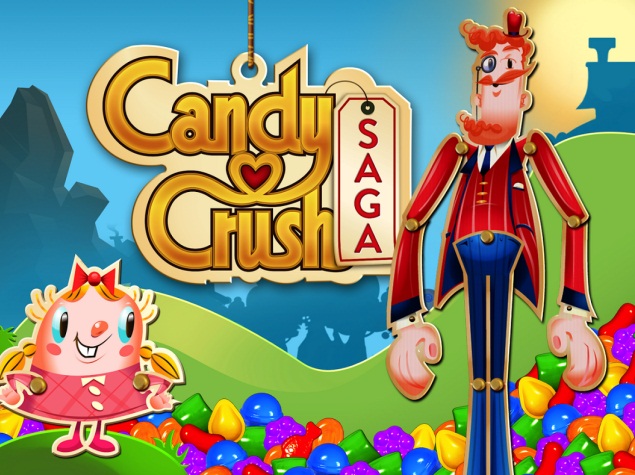Candy,Crush,Saga,maker,aims,to,raise,$500,million,in,IPO

The developer behind the wildly-addictive Candy Crush puzzle game said Tuesday it is seeking a listing on the New York Stock Exchange.
Millions of commuters, teenagers – even pensioners – clock in daily to test their skills at the game, which involves lining up tiny pieces of coloured sweets to make them vanish from the screen of their computer or mobile phone.
King Digital Entertainment said it had asked the US Securities and Exchange Commission regulatory body for a listing.
“King intends to list its ordinary shares on the New York Stock Exchange under the ticker symbol “KING,” it said in a statement. “The number of shares to be offered and the price range for the offering have not yet been determined.”
Candy Crush Saga – King’s top-selling game – started life as a Facebook game in 2012 but can also be played online and on smartphones.
The highly-addictive game is free, but players can pay for in-app extras to help them pass up through its more than 500 levels.
“This is a medium-sized business, with a global business model,” explained Laurent Michaud, video games expert at IDATE.
“They have reached a plateau. The initial public offering is a response to their need to pursue their international development.”
Candy Crush records some 700 million sessions a day and racks up daily sales of $850,000 (630,000 euros), according to the IDATE digital research and consultancy firm.
Thirty percent of Candy Crush players quizzed in a survey last year called themselves “addicted”, while 67 percent said the game had impacted on their lives in some way — distracting them from work or household chores.
A quarter of players said they had spent money on the game, according to market research firm Ask Your Target Market.
‘Winning new users costs money’
King Digital has come under fire for trademarking the word “Candy” in the European Union and has filed for a similar trademark in the United States.
Its chief executive Riccardo Zacconi defended the move last month, saying it was merely to stop copycats cashing in on Candy Crush’s success.
King Digital has six creative studios across Europe and has offices in Malta and San Francisco.
(Also see: Candy Crush Saga developer King trademarks the word “candy”)
It claims to have 324 million monthly unique users for 180 games in 14 languages, available through its King.com website but also on mobile platforms run by Apple, Google and Amazon, and on Facebook.
“They have a sizeable catalogue of content. The goal is going to be to consolidate their catalogue and disseminate this new content massively,” said Michaud.
“Winning new users — who are already bombarded from all sides — and keeping them, costs more and more money,” he said. “You need to create a mechanism that is both attractive and fun — which has a colossal cost in terms of development, games animation, marketing and PR.”
King Digital’s planned float is the latest in a series by Internet and gaming firms over the past three years — the most high-profile being Facebook and Twitter.
Despite its 1.1 billion users, Facebook had a rocky debut after it went public in May 2012, raising $16 billion in the biggest tech IPO on record. Its shares fell by more than half in the ensuing months, but have since recovered thanks to strong gains in mobile ad revenues.
Twitter’s IPO raised $1.8 billion in November 2013 — although shares later tumbled on warnings the short message network was overvalued.
Online gamemaker Zynga — behind the hit Facebook game FarmVille — was valued at $7 billion when it made its play on the stock market in December 2011, but it has been on a losing streak since then.
Shares in the online deals sensation Groupon have likewise halved since it went public.
But shares in both social network LinkedIn and the restaurant and business review website Yelp have risen around 400 percent since going public in March 2012.
Share a screenshot and win Samsung smartphones worth Rs. 90,000 by participating in the #BrowseFaster contest.
[“Source-Gadgets”]




